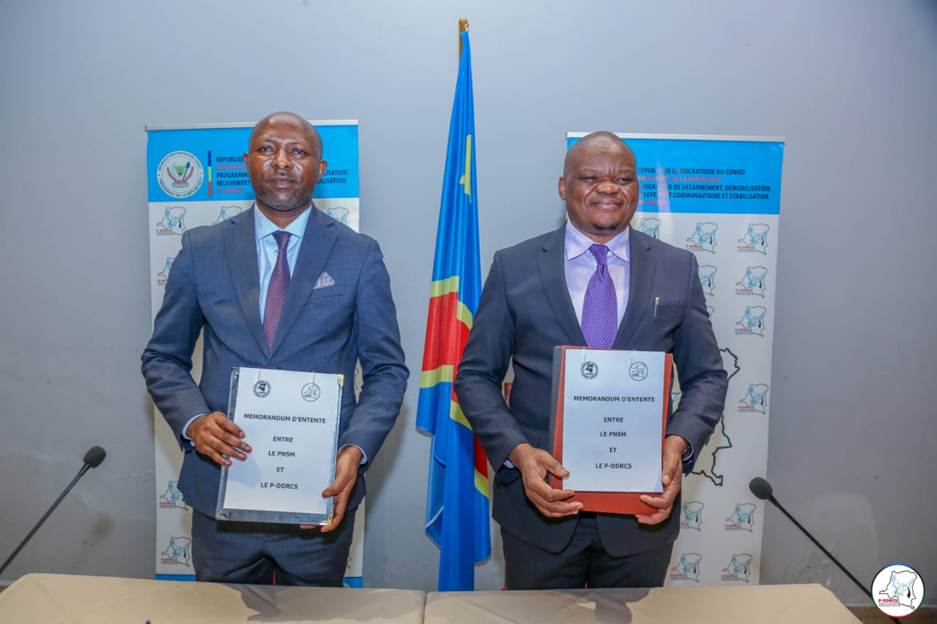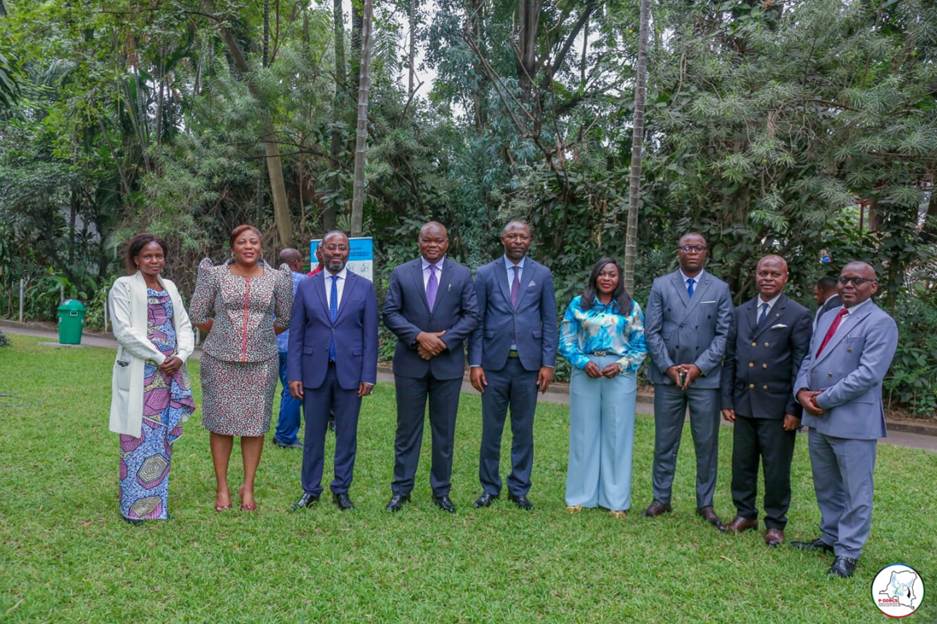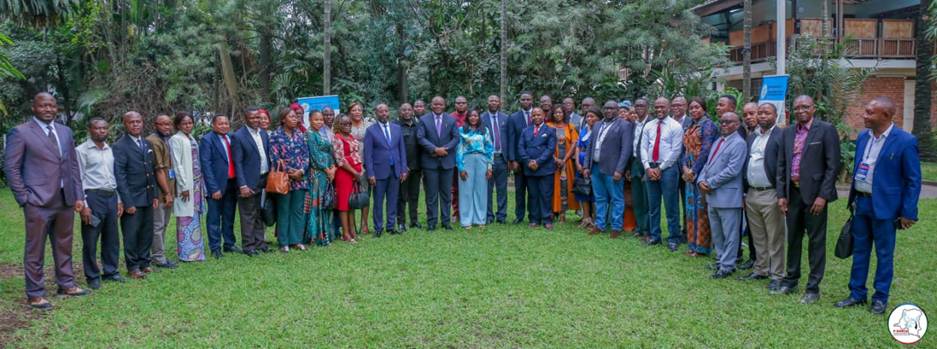KINSHASA: SIGNING OF THE MEMORANDUM OF UNDERSTANDING BETWEEN THE P-DDRCS AND THE NATIONAL MENTAL HEALTH PROGRAM

As part of efforts to establish a structured collaboration around the psychosocial care of ex-combatants and their host communities, a Memorandum of Understanding (MoU) was signed on Tuesday, August 5, 2025, between the National Coordination of the Disarmament, Demobilization, Community Recovery and Stabilization Programme (P-DDRCS) and the National Mental Health Program (PNSM) during a ceremony held at Cercle Elaïs in Kinshasa.
The DRC is gradually emerging from a long cycle of conflict. The DDRCS process must not be reduced to a technical operation of disarmament and demobilization; it is a profound social transformation, in which mental health stands as a critical pillar of stability.

This memorandum represents more than an administrative formality—it is a contract of trust, rooted in mutual responsibility and institutional commitment.
For Dr. Gédéon Nsamba Nkanda, National Director of the PNSM and lead on psychosocial support, this collaboration embodies a shift in paradigm. Over 40% of ex-combatants suffer from post-traumatic stress and depression, and communities, by stigmatizing their own children, perpetuate fragmentation and erode social cohesion.
To reverse this trend, the two programs will no longer operate in parallel but as two arms of a single body. According to Dr. Nsamba, “Without mental health and psychosocial support, no DDR process can be sustainable. There can be no lasting stabilization built on broken minds and fractured communities.” He underscored that mental health is not a luxury—it is a national necessity.

“This is more than a piece of paper,” he added, “we have sealed a promise: that lasting peace in the DRC will now depend on the healing of minds, just as much as on disarmament, recovery, and stabilization.”
In his address, Professor Jean de Dieu Désiré Ntanga Ntita, National Coordinator of the P-DDRCS, affirmed that this act goes beyond administrative cooperation. It is a strong political commitment, a human response grounded in structure, and a strategic leap forward in the national architecture of peace.

He emphasized that this collaboration is fully aligned with the vision of His Excellency Félix Antoine Tshisekedi Tshilombo, President of the Republic and Chair of the P-DDRCS Steering Committee, for whom social cohesion and the restoration of human dignity—both individual and collective—are non-negotiable foundations for sustainable stabilization. “There can be no recovery without healing invisible wounds, no lasting peace without mental well-being,” he declared.
The MoU with the National Mental Health Program formalizes this shift. It creates an institutional framework to systematically integrate mental health and psychosocial support at every stage of the DDRCS process—from disarmament to reintegration, from recovery to long-term stabilization.
For Professor Ntanga Ntita, peace is not merely the absence of conflict—it is the presence of inner balance, of adequate support systems, and of a nurturing community environment. Only under these conditions can relapses be prevented, cycles of stigma broken, and a deeply rooted peace built. “Mental health,” he added, “is not just the absence of illness. It is the capacity to rebuild, to reconnect, to hope. It is an infrastructure of both personal and collective peace. Without it, there can be neither sustainable development nor real stabilization.”
He ended with a heartfelt message to demobilized ex-combatants and their families:
“You are not alone. The Republic reaches out to you. The P-DDRCS stands with you—not to judge, but to lift you up. Be part of this new pact of trust. Peace begins at home, and together, we will strengthen it.”
It should be noted that this signature follows a strategic meeting held between the two government programs on May 5, 2025, setting the foundation for this vital collaboration.
P-DDRCS Communication Unit



